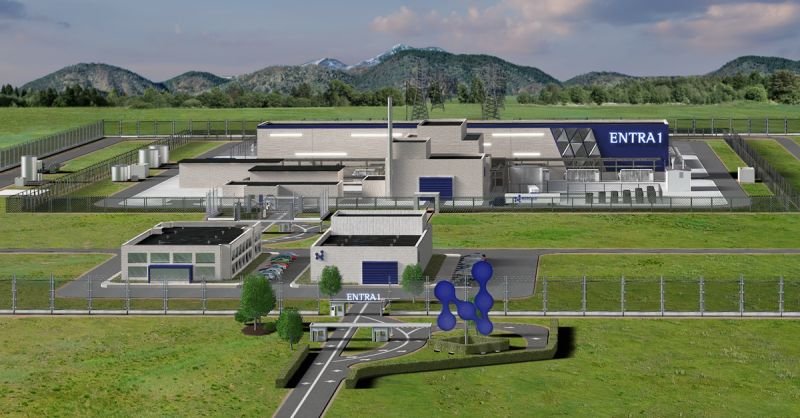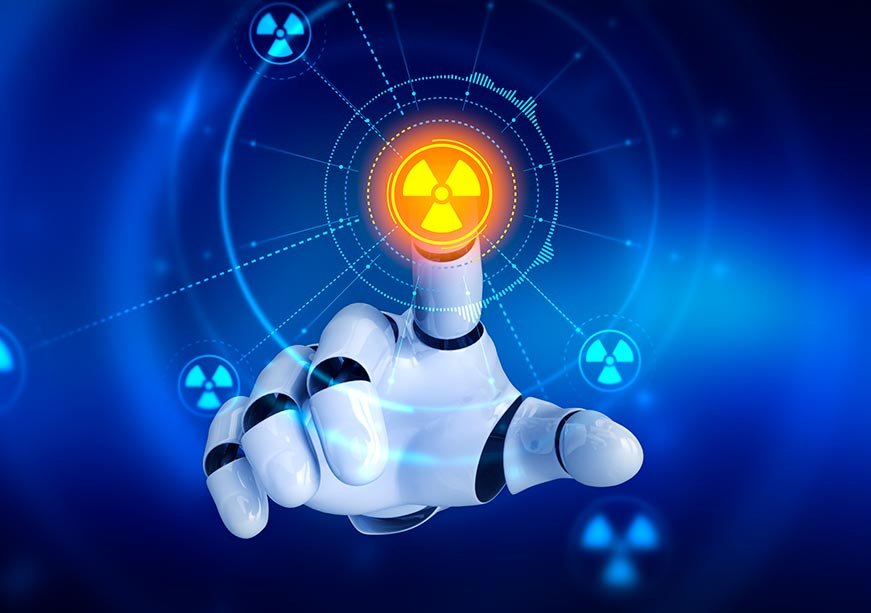ENTRA1 and NuScale Power have joined hands to bring Small Modular Reactor (SMR) technology to the Gulf region. This partnership is set to transform the energy sector in the UAE and Saudi Arabia, especially supporting the rapid growth of artificial intelligence (AI) and digital infrastructure. By using SMR technology, these countries aim to meet their clean energy needs while fueling innovation and economic development.
What is SMR Technology and Why It Matters for the Gulf
Small Modular Reactors (SMRs) are a new generation of nuclear reactors. Unlike large traditional nuclear power plants, SMRs are smaller in size, easier to build, and can be assembled in modules. This modular design allows for safer, more flexible, and faster deployment of nuclear power.
SMRs produce clean, reliable, and steady electricity without carbon emissions. This is especially important for the Gulf region, where energy demand is rising quickly due to rapid population growth, urban development, and digital transformation.

The Gulf countries have recognized that future energy systems must be sustainable and environmentally friendly. SMRs offer a promising alternative to fossil fuels, supporting these nations’ goals to reduce greenhouse gases and combat climate change.
Partnership Between ENTRA1 and NuScale Power
ENTRA1 is a regional leader focused on clean energy solutions, while NuScale Power is a global pioneer in SMR technology based in the United States. Together, they are working to introduce SMR technology to the Gulf, aiming to power the growing digital and AI ecosystems in the UAE and Saudi Arabia.
This partnership combines ENTRA1’s local expertise and knowledge of Gulf energy markets with NuScale’s advanced SMR design and technology. It will accelerate the adoption of SMR power plants, creating a new energy future for the region.
The project aligns well with both countries’ clean energy visions — the UAE Vision 2050 and Saudi Vision 2030 — which emphasize sustainable growth and cutting-edge technology development.
How SMR Technology Supports AI and Digital Infrastructure in the Gulf

Artificial intelligence and digital infrastructure are at the core of the Gulf’s future economy. AI research labs, smart cities, data centers, and cloud computing all require huge amounts of power — power that is consistent and reliable.
Power outages or fluctuations can cause major disruptions to AI operations, risking data loss and downtime. Traditional energy sources often fail to meet these demands sustainably.
SMR technology offers several key advantages for AI and digital infrastructure:
- Reliability: SMRs provide steady power 24/7 without interruptions.
- Scalability: Modular design allows power capacity to grow with demand.
- Clean Energy: Nuclear power from SMRs produces zero carbon emissions.
- Safety: New SMR designs include advanced safety features reducing risk.
By integrating SMR technology, the Gulf’s digital infrastructure can operate smoothly, supporting AI growth and innovation.
Benefits of SMR Technology for the UAE and Saudi Arabia
The benefits of SMR technology extend beyond just energy supply:
1. Environmental Sustainability
SMRs produce electricity without releasing carbon dioxide or other greenhouse gases. This helps the Gulf reduce its environmental impact, meeting global climate targets and improving air quality.
2. Energy Security
The Gulf can diversify its energy mix and reduce reliance on oil and gas. SMRs provide a stable, long-term power source that is less affected by fuel price changes or supply disruptions.
3. Economic Growth
New SMR projects create jobs in engineering, construction, and operations. They also attract technology investments and boost the digital economy by powering AI and smart city initiatives.
4. Flexibility and Speed
Modular SMRs can be built in factories and assembled on-site, cutting construction time and costs. This means faster access to new power capacity compared to traditional large nuclear plants.
Gulf’s Clean Energy Vision and SMR Technology
Both the UAE and Saudi Arabia have set ambitious clean energy goals:
- The UAE Vision 2050 aims for clean energy to make up 50% of the energy mix by 2050.
- Saudi Vision 2030 targets a sustainable energy system with 50% renewables and nuclear by 2030.
Introducing SMR technology fits perfectly into these strategies. SMRs complement solar and wind power by providing reliable base load energy, essential when renewable sources are intermittent.
The ENTRA1-NuScale partnership represents a strong step towards realizing these visions by bringing practical, clean, and modern nuclear solutions to the Gulf.
Challenges in Deploying SMR Technology in the Gulf
Despite its benefits, SMR technology faces some challenges:
- Regulatory Hurdles: Nuclear projects require strict safety approvals and compliance with international standards. The Gulf is still developing its nuclear regulatory frameworks.
- Public Perception: Nuclear energy often faces skepticism or concern from the public due to safety fears.
- High Initial Costs: Building nuclear reactors requires significant upfront investment, although SMRs are cheaper than large plants.
- Infrastructure Needs: Integrating nuclear power with existing grids and digital infrastructure needs careful planning.
However, strong government support, international cooperation, and public education efforts can help overcome these challenges.
The Future: Pilot Projects and Full-Scale Deployment

ENTRA1 and NuScale Power plan to start pilot SMR projects in the Gulf soon. These pilot plants will demonstrate the technology’s safety, reliability, and efficiency on a smaller scale.
Once proven, full-scale SMR power plants can be built to meet growing energy demand and fuel AI growth across the region. The partnership aims for significant SMR deployment within the next five to ten years.
This roadmap promises a clean energy future for the Gulf, where AI and digital industries can thrive with reliable, green power.
Conclusion: SMR Technology is the Backbone of Gulf’s AI and Digital Growth
ENTRA1 and NuScale Power’s partnership brings the future of energy to the Gulf. With SMR technology, the UAE and Saudi Arabia can power their AI ambitions while meeting climate goals.
Stable, clean, and safe nuclear energy from SMRs is key to supporting digital infrastructure that will define the Gulf’s economic growth and global competitiveness in the coming decades.
By investing in SMR technology now, the Gulf is paving the way for a smarter, cleaner, and more sustainable future.
Read More: Saudi Ministry of Defense Evacuation Aircraft Protect Pilgrims During Hajj













